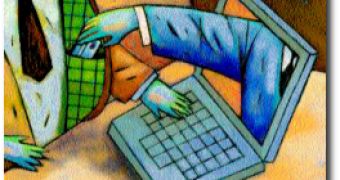Phishing is probably the most dangerous spam alternative on the internet because it can "force" you to send your bank account or credit information to an unknown person. The phising cases were reported very often but more often, the authorities blocked the attempt before any potential victim sent his details to the attacker. How can you recognize a phishing attempt? In most cases, you receive an e-mail message that requires you to send your bank or credit card information to avoid getting your account banned. As usual, the mail is sent from an e-mail address created by the company that offers you the account but it contains a link to a webpage similar to the official website of the provider. There, you are advised to enter your name and other details such as bank or financial information.
That's why you must know that you should ignore these e-mail messages because the companies that provide you important accounts will never send you this kind of announcement.
At this time, many security organizations are fighting against phishers but it is very difficult to identify an attacker and convict him for the infringement of the law.
Although this is very difficult, The Mercury News reported a Los Angeles case where a phisher can be convicted for up to 101 years in prison. It seems like Jeffrey Brett Goodin is suspected of phishing attempts after multiple users reported that they were advised to enter their billing information or they could lose the specific service.
"Jeffrey Brett Goodin, 45, of Azusa, was found guilty Friday of running a "phishing" scheme that tricked people into believing they were giving personal information to a legitimate business. Prosecutors said Goodin then used the information to go on a spending spree. Goodin is the first person in the nation convicted under the 2003 CAN-SPAM Act, the U.S. attorney's office said. The law forbids e-mail marketers from sending false or misleading messages and requires them to provide recipients with a way to opt out of receiving future mailings.
During trial, prosecutors presented evidence that Goodin used several compromised Internet accounts to send e-mails to America Online users. The e-mails appeared to be from the company's billing department and told customers to update their billing information or lose service," The Mercury News reported.

 14 DAY TRIAL //
14 DAY TRIAL //